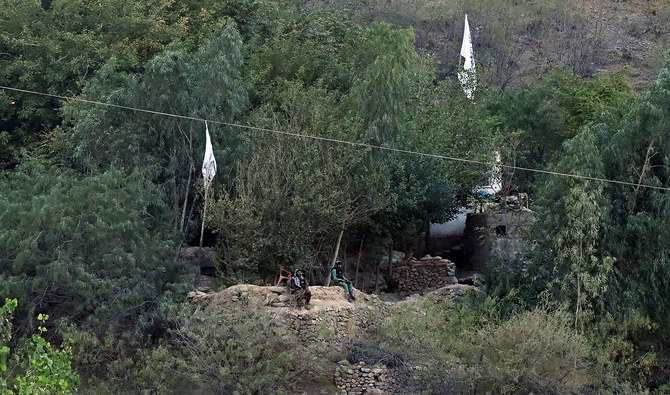KABUL: The Taliban on Tuesday rejected Pakistani government accusations that they’re to blame for the closure of a key border crossing.
Pakistan shut the vital commercial artery of Torkham in its northwest last Wednesday after guards from the two countries exchanged fire.
A Foreign Ministry spokesperson in Islamabad on Monday accused the Taliban of building unlawful structures and indiscriminate and unprovoked firing. The spokesperson, Mumtaz Zahra Baloch, also repeated claims that Afghanistan allows its soil to be used for terror attacks on Pakistan.
The two countries have been trading blame for months over border issues and militancy.
Baloch’s remarks have infuriated the Taliban, with one ministry official calling the Pakistani government “impotent” because it cannot guarantee the country’s security.
The Taliban-led Aghan Interior Ministry spokesman Abdul Mateen Qani said such incidents happen at borders. “In this case, we did not attack,” he told The Associated Press. “When we were attacked, we defended ourselves and this is our right. It is a matter of regret that Pakistan has not been able to ensure its security and is putting its problems on Afghans, that we are interfering. This is the reason for their impotence, they cannot ensure their own security.”
Bilal Karimi, the deputy spokesman for the Taliban administration, also condemned the Pakistani Foreign Ministry remarks. He said Pakistan’s internal problems are its own, and that their causes and roots should be found within Pakistan.
“Our responsibility is to ensure security in our country and not attract security threats,” he told the AP. “We hope the focus will be on good neighborliness and the economy. The door of good relations should be open.”
Leaders from both sides have been meeting to resolve the closure and put hostilities on ice.
Torkham witnessed clashes in February and the town remained closed for several days after the two sides accused each other of trying to build new posts along the border.
Afghanistan has never recognized the porous border that runs through the Pashtun heartland and dilutes the power of the country’s largest ethnic group on both sides.
Pakistan says it has completed fencing along 97 percent of the border to stop attacks and smuggling.




















